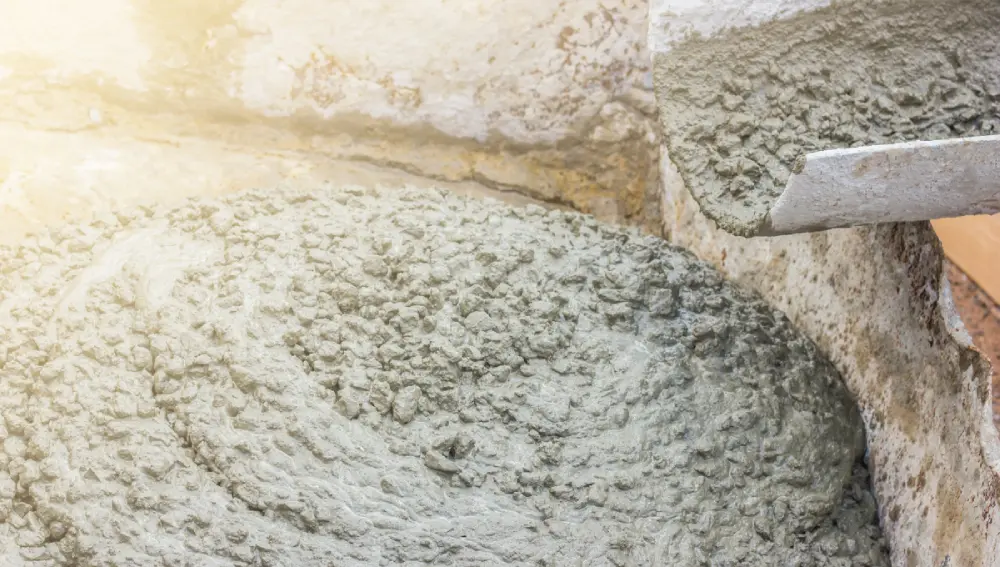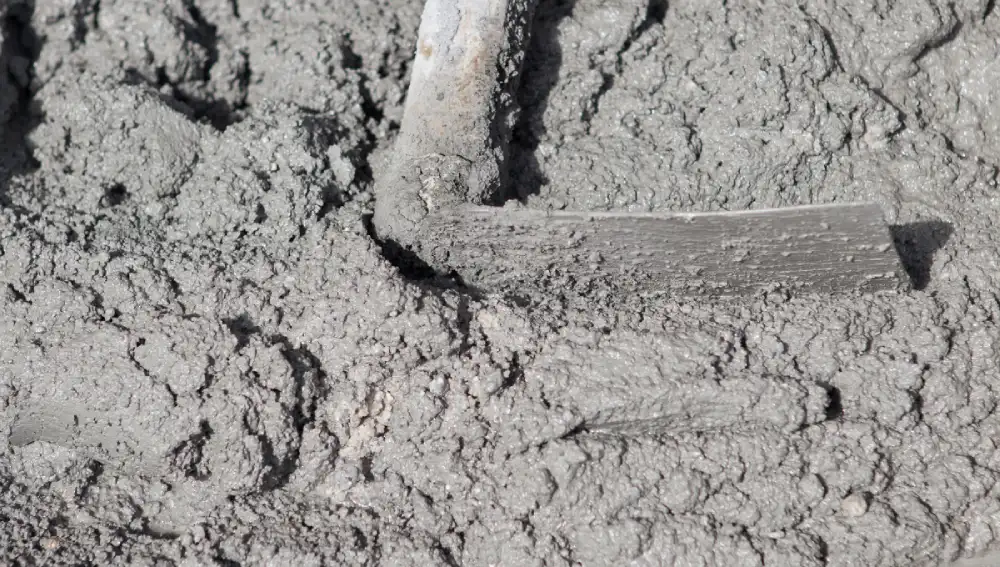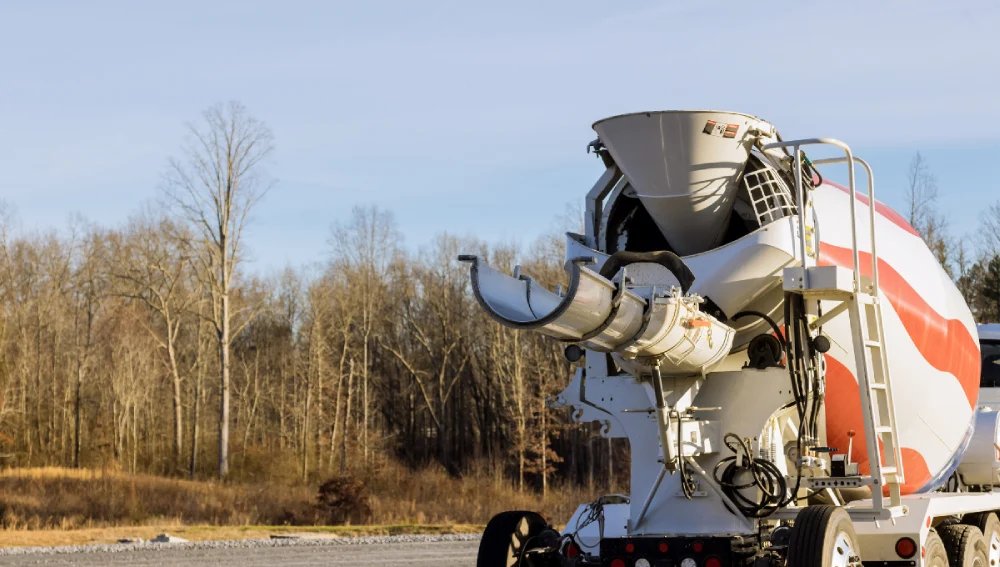Imagine building a house. But instead of mixing the concrete yourself, a giant truck arrives with the perfect concrete mix already prepared! That is Ready-Mix Concrete (RMC).
RMC is a good choice for large-scale construction projects that require large amounts of concrete mixtures that will take a long time to prepare on-site.
So, what is ready-mix concrete, and how does it help in construction? Let’s look into all about RMCs in this article.
What is Ready-Mix Concrete (RMC)?
Ready-Mix Concrete (RMC) is a batching of concrete that is manufactured in a batching plant according to a set mix design and then delivered to a work site by truck-mounted transit mixers.
This method uses precise measurement, providing high-quality concrete mixtures in construction projects.
RMC is known for its quality and convenience, making it a popular choice for construction projects. It is commonly used in residential buildings and other large-scale projects.

Breakdown of RMC
Ingredients
Cement, sand, gravel (or crushed rock), and water. The ratios for each ingredient are predetermined.
Pre-mixed
Unlike site-mixed concrete that is mixed on-site, RMC arrives perfectly mixed and ready to use.
Convenience
RMC saves construction time and reduces the mess created in site-mixed concretes.
Quality Control
Mixing at a dedicated plant ensures quality. This makes RMC a reliable choice.
Types of ready-mix concrete
There are many criteria that can be used to classify RMC. However, it is mainly classified based on the mixing process. Some major types of RMC based on the mixing process are listed below.
Transit-mixed concrete
In this type of concrete, all ingredients, including concrete and water, are mixed uniformly in the truck mixer when the concrete is in transit to the construction site.
Shrink-mixed concrete
In this type of RMC, the concrete is partially mixed during transit, and the remaining mixture is mixed in the construction site by adding some water.
Central mixed concrete
Unlike transit-mixed and shrink-mixed concrete, in central mixed RMC, the concrete mix is thoroughly prepared in the batching plant itself and then transferred to the construction site.
Specific construction sites require specific types of RMCs. choosing the right type of RMC is essential to get the best outcome. Ensure to take note of factors like its strength, durability, costs, etc.
RMC vs. Site-Mixed Concrete
Concrete comes in two types:
- Pre-mixed (ready-mixed concrete)
- site-mixed concrete
Ready-Mix Concrete (RMC) arrives perfectly blended by truck, saving time and mess. As we discussed above, the concrete mixture is prepared in the batching plant or during transit and can be used immediately on the construction site.
RMC is often preferred during large-scale construction projects and urban areas where there won’t be enough time and place to prepare the concrete on site and there are transportation facilities.
RMC mix will also be of high quality because it is produced in a controlled environment, which ensures uniform mixing.
Site-mixed concrete requires mixing ingredients in specific ratios on-site, which is more labor-intensive. This method is preferred in small-scale construction projects when there are not enough transportation facilities.
Benefits of Using RMC

Faster Construction:
With ready-mix concretes that are mixed professionally in a batching plant, there is no need for on-site mixing. They can be used immediately upon arrival, saving valuable time and keeping projects on schedule.
Consistent Quality
Unlike on-site mixing, where the ratio for each ingredient is manually added, RMC is measured and mixed in a controlled environment. This ensures every batch of RMC is strong, reliable, and high quality.
Reduced Waste
Pre-measured ingredients reduce leftover materials, saving money and minimizing environmental impact. Even when the concrete structure is demolished in the future, it can be ground and used elsewhere as backfills or for laying new foundations.
Cleaner Worksite
The concrete is pre-mixed and delivered to the site for immediate use. This eliminates dust pollution and mess associated with traditional on-site concrete mixing.
Potentially Lower Labor Costs
RMC requires less manpower, thus reducing labor costs. You also don’t need to pay separately for the resources needed to mix the concrete. Instead, you can just buy the finished product.
Limitations/disadvantages of ready-mix concrete
Though RMC is very beneficial in large-scale construction projects, they do have some disadvantages that you should take not of.
Higher initial cost
Though you can directly buy RMC mixtures, and they are easier to use than site-mixed ones, they are generally more expensive than site-mixed concrete. This involves the cost of transportation, production, and delivery. On average, RMC in India costs about Rs. 4000 to Rs. 6500 per cubic meter.
Limited timeframe
Once the concrete is mixed, it needs to be used within a specific timeframe or it will start to set. This can affect the concrete’s quality.
Quality issues
Though RMC is prepared in a controlled environment and has better quality than site-mixed ones, factors like transportation and placement can affect its quality.
Higher carbon footprint
The production and transportation of RMC leaves a higher carbon footprint on the environment than site-mixed concrete.
Minimum order quantities
RMC has minimum order quantities, which might nit be suitable for small-scale projects.
Conclusion
By delivering a pre-mixed concrete mixture, RMC eliminates the need for on-site mixing, saving time and labor costs. RMC is also more environment-friendly and creates much fewer pollution concerns than site-mixed concrete.
Remember, using site-mixed or RMC as your concrete mix is entirely your choice. However, it is best to consider all the factors, like the benefits and limitations of each concrete, before choosing the one for your construction project.
FAQs
The ratio of RMC (Ready-Mix Concrete) refers to the proportion of its key components—cement, sand, and aggregates—used to achieve desired strength and workability. Typically expressed as a mix ratio like 1:2:4 or 1:1.5:3, this ratio is crucial for ensuring the concrete’s durability and performance in construction.
The cost of ready-mix concrete varies depending on factors like location, mix type, and quantity. On average, it ranges from $120 to $150 per cubic yard, but prices can fluctuate based on regional market conditions and specific project requirements.
Concrete mix and ready-mix concrete differ primarily in their preparation and delivery:
Concrete Mix: This refers to the raw materials—cement, sand, gravel, and water—that are mixed on-site or in a batch plant according to a specified ratio. The mix is typically prepared by the builder or contractor just before use.
Ready-Mix Concrete: This is pre-mixed concrete that is manufactured at a central plant and delivered to the construction site in a truck. It is ready for immediate use upon arrival, saving time and labor compared to mixing on-site.

